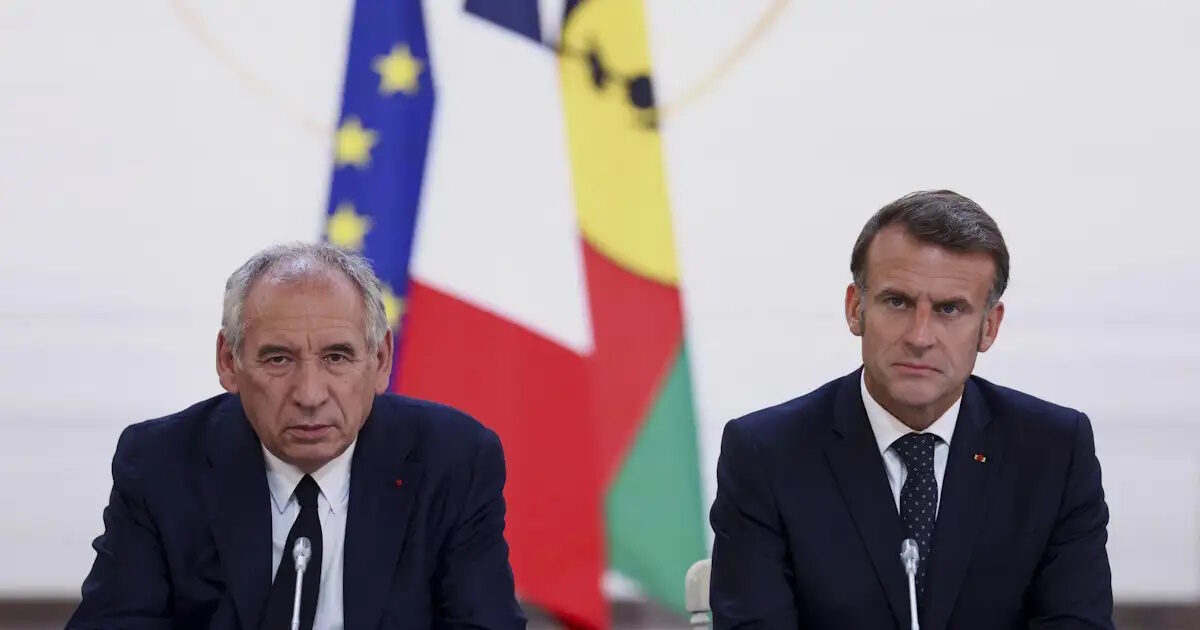France is on dry acne a few hours before the critical vote (4 pm Greece) in its National Assembly to provide or not voting confidence to the government. Bairouwhich is politically controlled by the Macron.
The most likely scenario, according to analysts, is the fall of the Bairo government, which leads to a new government’s setting up processes and if this fails to call for new early parliamentary elections, while at the table -if the president is explicitly excluded.
All scenarios, except for the (almost unlikely) scenario of Bairo’s vote, show a deterioration of the financial crisis in France, with the first “pain” expected to be given by the French government bond yields.
In other words, the expected decline of the Bairo government is expected to lead to an increase in bond yields or otherwise the cost of lending to France.
According to the latest estimates by the Commission for France (Spring Forecasts 2025), “economic activity in France is expected to slowly slow down in 2025, at 0.6%, due to the fiscal adjustment and uncertainty associated with trade. GDP increase is then projected to accelerate to 1.3% in 2026, as investment recovers and higher real wages support further expansion of private consumption. Inflation is projected to decrease below 1% in 2025 due to the decline in energy prices. The government’s deficit is projected to decline to 5.6% in 2025 and reach 5.7% of GDP in 2026.
What did Lagarde
In the face of… the worse of the French crisis, on September 2, 2025, ECB’s (French) leader Christine Lagarde intervened, rushing to prevent dramatizing scenarios regarding the danger of France under the supervision of the International Monetary Fund.
Specifically, referring to current political and economic developments in France and the forthcoming vote of confidence in the government of François Bayrou, Ms Lagarde expressed her concern about the implications of the country’s possible fall in this government, while stressing that the policies of the country have been in the country. markets, as they increase the perception of countries’ dangers and can have a direct economic consequences for all eurozone member states.
However, she made sure to clarify that the debate on the possibility of France under the guardianship of the International Monetary Fund was “unlikely”, recalling that the IMF. It only intervenes in cases of serious external deficits and inability of a state to meet its obligations, which does not apply to France today.
In her estimation, the IMF It would encourage France to impose fiscal discipline alone. Furthermore, Ms Lagarde pointed out that French banks are sufficiently capitalized, better than in the 2008 crisis, and that, despite recent volatility in the Stock Exchange due to political developments, she does not consider the French banking system at risk or is a source of risk.
The statements by the President of the EKT They took place in a period of growing political uncertainty in Europe, where political and government stability is considered a critical factor in the credibility of the eurozone.
EKT’s attitude It is reminiscent of the period of the European debt crisis (2010–2015), when political developments in countries such as Greece or Italy strongly influenced markets and put the EU under pressure. Overall.
As Ms Lagarde explained, France, as the second largest Eurozone economy after Germany, plays a key role in maintaining economic stability and the challenge of its fiscal power or cohesion policy could have systemic consequences. Further, Ms Lagarde pointed out that EKT. It is not limited to monetary policy, but also closely monitors political dangers, as they overall affect the costs of borrowing, market confidence and the eurozone’s monetary stability.
In her statements, according to the Greek Embassy’s Economic and Commercial Affairs Office in Paris, Ms Lagarde seeks to reassure the markets and prevent the IMF crisis and intervention scenarios. Underlining France’s relative economic durability, on the other hand, he warns that political instability remains a significant risk to the markets and cohesion of the eurozone. It should be noted that the ECT president – the oral assurance of the French banking system for the health of the French banking system acts as a signal of stability to prevent a self -portrayed crisis of trust. However, her persistent reference to the concern about political instability shows that EKT. prepares to react if the situation in France leads to substantial turbulence in markets.
What will the ECB do
According to today’s France 24 report, the European Central Bank is expected to keep interest rates again on Thursday, September 11, 2025, with inflation under control and tariff tensions in the US to retreat, even as the political crisis in France presents a new headache.
It will mark the second consecutive meeting in which the central bank of 20 countries using the euro holds the basic deposit rate unchanged at 2%.
The pause comes after more than a year of reductions, as the ECB has changed the course of tackling the sharp increase in inflation in trying to support the besieged eurozone.
Inflation has stabilized in the EU, fluctuating around the target of 2% of the central bank in recent months.
“Any change in policy interest rates would be a big surprise,” HSBC analysts said in a note on Thursday’s meeting.
In the United States, meanwhile, the federal bank is widely expected to reduce interest rates this month after a long waiting period as it seeks to support the labor market and after continuous pressure from President Donald Trump.
